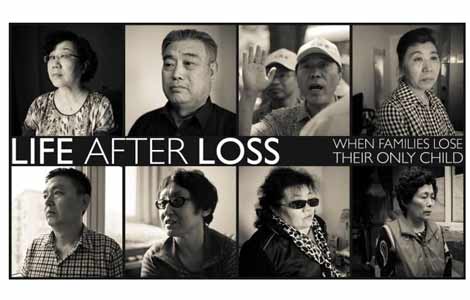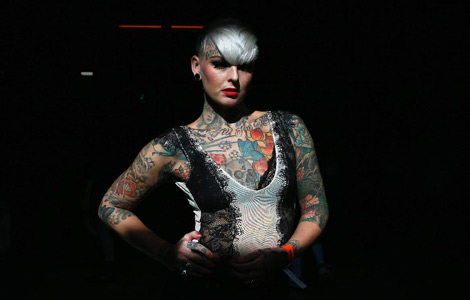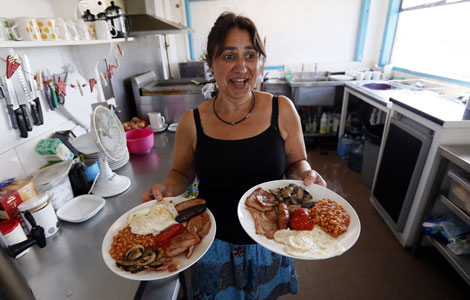A love affair with African gem stones
Updated: 2013-10-01 11:13
By Li Aoxue (China Daily)
|
|||||||||||
When Wang Yang moved to Botswana in 2007, it was to be with her husband, whose company had relocated him to the country. But after three years there, the former accountant had fallen in love with African gems and used her new-found interest to launch her own company.
When I met the 29-year-old, she was busy with customers, showing them some deep blue tanzanite jewelry. Her shop in Beijing sells a wide range of jewelry containing gems mined in Africa, many of them colorful stones that are becoming increasingly popular in China.
"With more Chinese women dressing in a Western style, they are beginning to look for colorful jewelry, such as African jewelry, that matches their clothes and looks more fashionable," says Wang.
This is a move away from the traditional gold and jade jewelry that Chinese women used to wear, according to Wang.
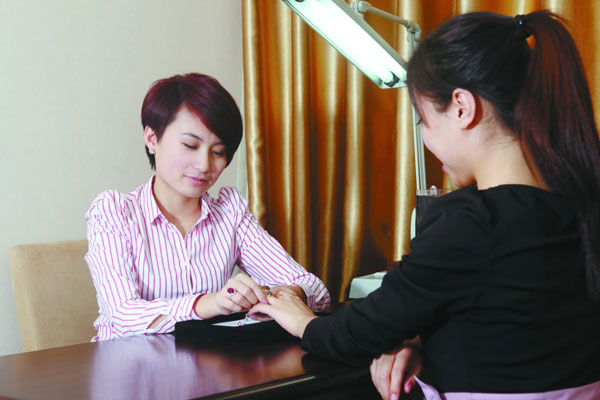 |
|
Wang Yang shows a customer some tanzanite jewelry. Provided to China Daily |
"As China becomes more internationalized and more people study abroad, colored gems are beginning to become more popular here," she says.
China is now the second-largest market for colored gems, she adds, with around 400 billion yuan worth sold every year, yet they remain just 3 percent of the country's total jewelry sales, as opposed to 30 percent globally.
Wang believes this factor, along with the high price of jade, leaves room for a rise in the market for the colored gems in which her shop specializes.
Most of Wang's clients are relatively young, born in the 1980s or later, and spend less than 10,000 yuan on their first purchase from her shop.
"Unlike other jewelry such as gold and diamonds, which tend to look the same, colored gems come in many styles," Wang says, and because of this customers return often.
Her most popular jewelry is priced at between 10,000 yuan and 20,000 yuan and monthly sales can reach as much as 500,000 yuan.
Such hefty profits were far from Wang's mind when she first moved to Botswana. On arriving there she made an effort to get out and make new friends and gradually through them developed an interest in African gems.
Botswana is among the top gem producing countries in the world and known for its diamond trade.
Friends in China began to ask her if she could buy African diamonds for them and Wang began to visit mines and factories connected with the trade.
The largest trading center for gems in Africa is in Johannesburg, about an hour's flight from Botswana, she says. Wang visited it often to buy gems for friends in China and gradually developed an understanding of the continent's gem and jewelry markets.
In 2010 she returned to China and set up her business, initially concentrating on selling diamonds and tanzanite. Gradually, she began to move toward selling colored gems such as ruby, sapphire and tourmaline.
Before going to Africa, Wang worked as an accountant at PricewaterhouseCoopers, so she was familiar with a business environment.
"Two major things determine whether a business can be successful," she says. "One is people. Only an entrepreneur knows how to use people so their business can operate better. The other is money. Only a boss knows how to spend money wisely."
Wang is thankful for her experience at PwC, but even more so for the time she spent in Africa, which she says inspired her to launch her own business.
"I think I am so lucky," she says. "Few people get to turn their hobby into a career.
"I enjoy serving and helping Chinese women choose the best jewelry for them, and I'm happy to make them look more beautiful."
Enticing new customers to visit the shop has involved more than just opening the doors. Wang hosts afternoon tea parties for customers in an effort to bring them back.
"The gatherings are twice a month and we talk about different topics such as aromatherapy and astrology," she says.
The get-togethers are a good way to get to know her customers, she believes, and for them to make new friends.
She is also finding an increasing number of male customers keen to buy a romantic gift for their wife or girlfriend.
"A man once came to me and asked me to design a hot air balloon shaped ring for his girlfriend to commemorate a trip they took in Turkey," she says.
Wang's success has come from adapting to these kinds of demands, and she plans to expand.
She is eyeing a move from her current premises, which is 90 square meters, to a shop more than three times the size.
.
Related Stories
2013 Beijing Int'l Jewelry Expo kicks off 2013-09-25 15:36
Zhang Yuqi covers BAZAAR Jewelry 2013-08-16 15:52
Five generations of ancient Miao jewelry 2013-07-29 16:59
Finding power in jewelry 2013-07-15 09:23
Kelly Lin poses for BAZAAR Jewelry 2013-06-24 14:42
Today's Top News
China committed to deepening reform
Chinese embassy in Syria attacked
China, India join hands on border stability
China issues guidance for government purchases
Li praises foreign experts
Website launched to assist expat professionals
FTZ issues first 'negative list'
50 foreign experts honored with Friendship Awards
Hot Topics
Lunar probe , China growth forecasts, Emission rules get tougher, China seen through 'colored lens', International board,
Editor's Picks

|

|

|

|

|
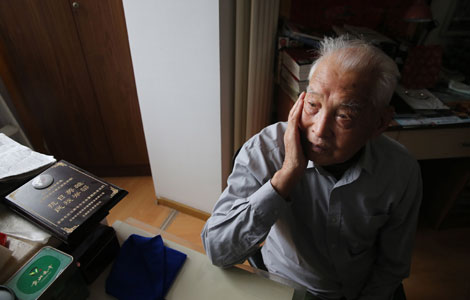
|

